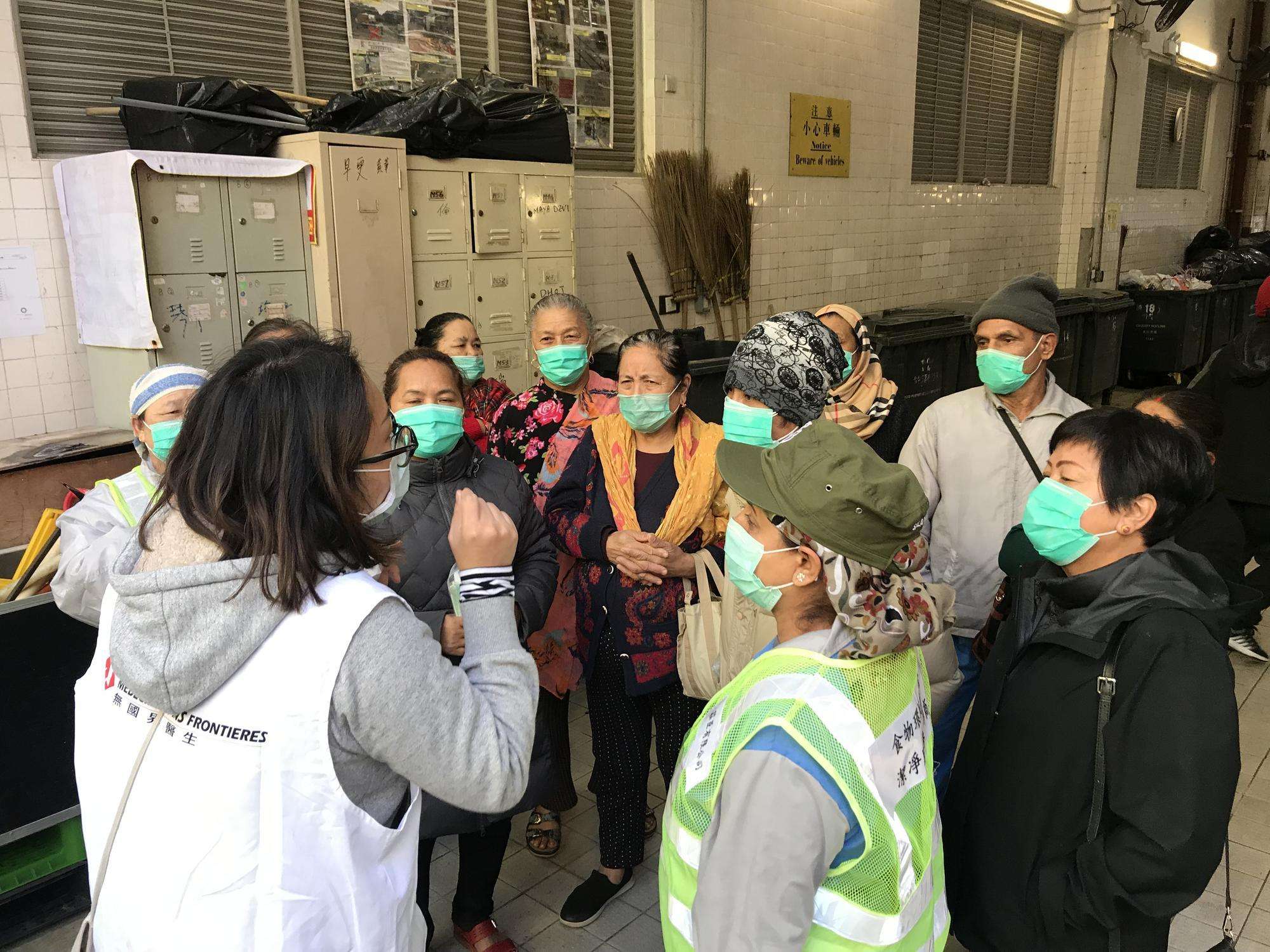Hi, I’m Raimund. I’m a psychologist working for MSF here in Hong Kong. We have activities here where we try to help people to deal with the panic that they’re experiencing, and the anxiety related to the coronavirus outbreak.
One of the difficulties that we see, why people are actually so afraid of the virus, is that it is experienced as something very threatening, life threatening in fact. So in our bodies we have something called a fight, flight, and freeze response, which is unconsciously triggering our activities, the way we think, and the way that we feel. The system is created to react in a short period of time. The problem that we have now is that we are exposed for a very long period of time, constantly, with this threat. Every news media, every headline, every feed that we see, every message that we receive related to this might start a little bit of this fight and flight and freeze reaction in our bodies.
This leads us to isolate ourselves. This leads us to have sleeping problems. This makes us afraid of actually seeking health care because we might be afraid, as well, of being stigmatized by what other people think about us. This changes our shopping habits, so there are people who are feeling so afraid of running out of some basic goods that it means they’re hoarding or shopping as much as they can.
But what I want you all to know is that you can learn to have an impact on how you perceive things and how you deal with the situation inside of you. That means how do I deal with the stress? How do I deal with the anxiety? How do I deal with the messages I’m reading?
And for this we can give you some small advice maybe that you can try to use, ok? First of all, what is important in very stressful times or very stressful situations is, use relaxation coping mechanisms that you have.
So for some people it’s even enough when you’re very stressed to just take a few deep breaths. Or you can use muscle relaxation techniques. You can use meditation. You can use any kind of relaxation that helps you.
The second part: try to be aware of where is the information coming from. So take a break from all of this overflow that you are experiencing. Select the information, take maybe some time during the day specifically. Listen to the news, get the updates that are important for you. But try not to be overwhelmed all the time.
The third part is also taking care that we want to emphasize. So it’s not only about protecting yourself with hand hygiene and so on. It’s also about a healthy diet, doing some exercising, and also taking care of other people who really need our support.
In these times we feel like we’re… like our survival instinct is forcing us to think very egocentrically, heuristically. So we want to protect ourselves. But, in fact, the ones who are suffering the most, or at highest risk, are elderly people and our health care workers.
Everybody is facing now a very difficult situation, and it’s important to show the world that we are a community and we can help each other.
Many of us are losing sleep these days—bombarded with news and information about the new coronavirus outbreak. People are feeling anxious, afraid, and alone. Raimund, a psychologist working for Doctors Without Borders/Médecins Sans Frontières (MSF) in Hong Kong, offers some simple tips for how we can cope with the stress during this pandemic. He explains the biological basis behind our collective panic and suggests taking breaks to avoid information overload. He also points out that while our survival instinct might push us to be more selfish, we can only get through this crisis by looking out for each other: “It’s not only about protecting yourself…. It’s also about taking care of other people.”




